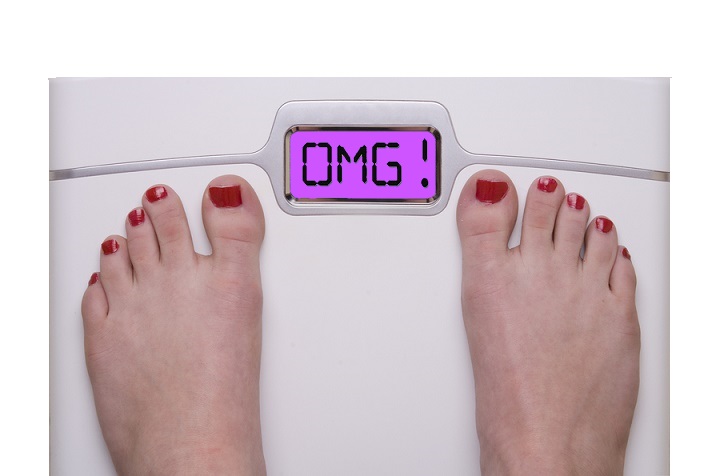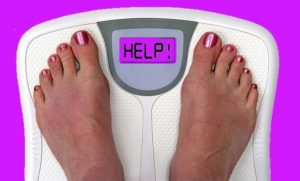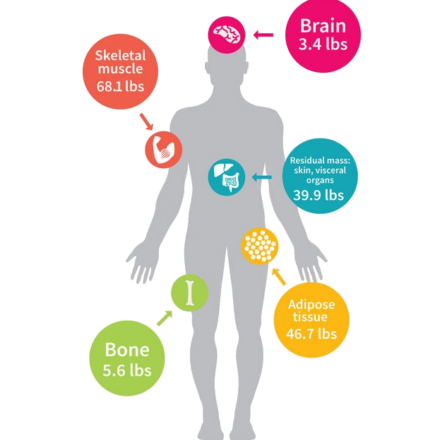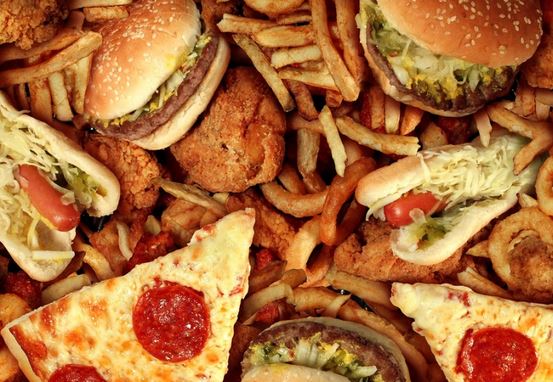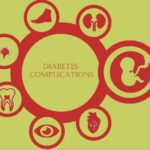Involuntary weight loss or weightloss without any reason, may be associated with any disease or psychological problem. In this case, it is important to see a doctor, especially if weight loss is sudden and very notable, without having carried out a diet for this purpose. Weight loss is considered clinically serious when it is greater than or equal to 5% with respect to the normal-weight over a period of between 6 months and 1 year.
The involuntary weight loss is a common symptom, especially among hospitalized patients in internal medicine and elderly people. The causes that can cause unintentional weight loss include gastrointestinal problems (Crohn’s disease, peptic ulcer, chronic diarrhea), Gastrointestinal Neoplasms, haematological or kidney, infections such as HIV, chronic HCV infection, the Parkinson’s disease, ALS, dementia, hyperthyroidism, diabetes undiagnosed, chronic adrenal insufficiency, vasculitis, insufficiency of grade III, COPD or severe kidney failure , among others.
In elderly people the problems of mastication, swallowing, mouth ulcers, lack of teeth or the presence of devices experiencing this may hinder the intake of food, with the possible consequence of weight loss.
On the other hand, involuntary weight loss may also be associated with depression, especially in elderly people, anxiety, bipolar disorder, paranoid psychosis, anorexia nervosa or bulimia.
The consumption of some drugs and drugs can also cause a problem of weight loss. Thus, it has linked the consumption of alcohol, marijuana, cocaine, opiates, amphetamines, antidepressants, antipsychotics, metformin, antiepileptic or some herbal products.
Causes economic or eating habits, for example, an unbalanced diet, the lack of certain nutrients, can also cause this unintentional weight reduction.
For involuntary diagnosis of weight loss it is necessary for the primary care physician to make an anamnesis and a full scan. In addition, can be necessary diagnostic tests as a blood test, urine, an analysis for the levels of thyroid hormone, serology for HIV, an ultrasound or abdominal x-ray, among others.
Depending on the cause of weight loss, treatment will be focused to causal pathology, as well as a nutritional program for the recovery of body weight. Psychological counseling may be necessary in cases of psychological problems. In cases of oral discomfort may also be required a visit to a dentist. In any case the doctor is which can first diagnose the cause and recommend the best procedure in each case individually.
Weight loss : Causes
Weight loss it may be due to several causes. As a general rule, weight loss is related to low food intake, diets, exercise , or stress.
Weight loss is usually harmless and is solved by changing daily habits and food. However, behind unwanted weight loss and unexplained illness can hide and, in this case, it is important to seek medical advice.
The extreme hunger that people suffering from disorders of food, especially in anorexia nervosa, although sometimes in bulimia nervosa, are subjected leads to weight loss that may endanger life. In other psychic diseases, such as e.g. depressions, also changes in weight, since patients have lost the “urge to eat” or want to deliberately hurt.
Diseases which can cause a rapid loss of weight are, amongst others, the following:
- Stomach and intestinal infections and diseases that cause diarrhea
- Infections by parasites in the intestines (for example, taenia saginata or the worm of fish)
- Chronic inflammations of the bowel (e.g., Crohn’s disease or ulcerative colitis)
- Malabsorption syndrome (inadequate absorption of foods eaten, e.g. due to celiac disease)
- Allergies or food intolerance (e.g., lactose intolerance)
- Cancer (for example, lung cancer or bowel cancer)
- Chronic infections (e.g., AIDS)
- Inflammation of the pancreas (pancreatitis)
- Hyperthyroidism
- Diabetes mellitus
- Addison’s disease (adrenal cortex disease)
- Diabetes Insipidus
- Substance abuse (for example, alcohol, nicotine, heroin)
- Medications (for example, the cardiotonic digitalis or certain medications for asthma)
Loss of Weight: Diagnosis
If it has suffered a sudden and unwanted, weight loss for no apparent reason, call your family doctor to find out the correct diagnosis. In the anamnesis, the doctor should ask the patient the pounds lost, long, and if notice other problems (for example, tiredness, diarrhea, headaches). Also should know, among other things, if has changed something their habits food or physical, if has suffered any disease (as inflammation chronic of the intestine or cancer), if takes drugs or if is passing by a situation family or labor complicated.
The scale will indicate his weight current and its index of mass body (BMI) includes launch if is below your weight normal. To find out the extent and causes of weight loss should perform a full check in which the pulse and blood pressure will be measured and, if appropriate, an electrocardiogram and ultrasound.
Other causes of weight loss may be detected in a blood test. In this case, should look at the values of the thyroid hormones, blood sugar, liver function values, functioning kidneys, the level of fat in the blood, the red blood cells and white, signs of inflammation and other blood values. An analysis of bowel movements can also serve to detect, for example, infection by parasites. If you suspect a particular disease (e.g., hyperthyroidism, diabetes mellitus, intestinal diseases, or cancer) as the cause of weight loss, more tests will be needed to make a correct diagnosis.
Weight loss: Treatment
The treatment of weight loss should be the underlying causes of it.
If a poor diet, for example, has eaten less than what your body needs, it is important to resume eating and physical healthy. In this case, they can be helpful advice from nutrition experts or other therapists. Especially in eating disorders (such as anorexia nervosa or bulimia, for example) and psychic diseases in psychotherapeutic and, given the case, psychiatric treatment is important.
The weight loss associated with age, has demonstrated that supplementation of energy protein supplements in elderly feeding helps to improve your weight.
If weight loss is due to the hyperthyroidism, the treatment must be based, above all, in the taking of a drug treatment. If the cause lies in taking some medications, weight will be normalized as soon as you stop taking them, although you should always consult with your doctor before doing so.
If it is caused by a cancer, may be due to the tumor itself, with the treatment they are receiving (chemotherapy, radiotherapy), with symptoms of the disease (lack of appetite, nausea, vomiting, disorders of digestion or metabolism of certain nutrients, among others) or with the power that the patient is receiving.
Malnutrition in cancer patients usually affect 50% of people at the time of his diagnosis and almost 80 percent in advanced, especially in tumors of pancreas and gastric phases. In these patients, it is very important to try to prevent malnutrition, to the extent possible, to avoid the known as tumor cachexia syndrome.
Cachexia is a set of metabolic processes that cause the patient anorexia, weight loss, and loss of muscle mass. It is an irreversible syndrome, which is associated with many tumors when the cancer is diagnosed.
Thus, food for the cancer patient should be a priority in the treatment of the tumor itself. So that cancer patients are not malnourished and have enough food to support the treatments it is necessary that the patient follow guidelines and very stable feeding schedules, with five or six daily intakes, a good hydration, proper oral hygiene, encourage the consumption of snacks, increase physical exercise to increase appetite, avoid foods rich in fat and that prevail easily digestible foods , among other measures that the oncologist may recommend.
The best solution is start getting healthy diet now. Click Here for more details
Refrences
- Harrison. Principles of medicine internal; 17th Edition; 2008; McGraw-Hill.
-
DE EN, N. L. F. R. “How to Lose Weight During Pregnancy???.”
-
Tried to internal medicine. Farreras Rozman; 16 th ed. 2008; Elsevier.
-
Ockenden, Holly. Women’s Knowledge, Behaviours and Dietary Patterns Contributing to Excess Weight Gain In Pregnancy. Diss. Université d’Ottawa/University of Ottawa, 2016.
- Family medicine. Principles and practice; Robert B. Taylor; 2006; Masson.
- Unintentional weight loss; Angel Carlos Cubillo Matia; Update in family medicine; semFYC; 2011.
- Recommendations of food for cancer patients; Advances in food, nutrition and dietetics; Jesús Román Martínez and Antonio Villarino Marin; Foundation healthy eating; 2015
 NL
NL FR
FR DE
DE EN
EN
